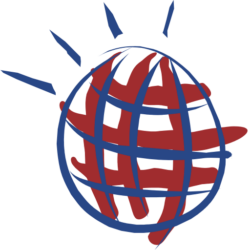The following workshops will be organised together with EDOC 2020:
- Privacy and Security in Enterprise Modeling (PriSEM)
- Service oriented Enterprise Architecture for Enterprise Engineering (SoEA4EE)
- Frontiers of Process Aware Systems (FoPAS)
- Personal Health Information Engineering for Research & Practice (PHIERP)
- Trends in Enterprise Architecture Research (TEAR)
Please find more information on these workshops below.
All papers that are accepted for the workshops will be published by IEEE Press.
Privacy and Security in Enterprise Modeling (PriSEM)
The goal of PriSEM’20 is to bring together researchers and practitioners to discuss theoretical and practical problems and solutions in a rapidly maturing domain of enterprise security and privacy. The integration of security and privacy aspects in enterprise models is a central theme of this workshop. We strongly encourage the submissions reporting a synergy of innovative research and best practices in the area of organizational privacy and security management, modeling and architecture, etc.
Website: https://prisem-ws.github.io/
Submission: https://easychair.org/my/conference?conf=prisem20#
Service oriented Enterprise Architecture for Enterprise Engineering (SoEA4EE)
Enterprise Engineering (EE) is the application of engineering principles to the design of Enterprise Architectures. It enables deriving the Enterprise Architecture from the enterprise goals and strategy and aligning it with the enterprise resources. Enterprise architecture is used to map the enterprise goal and strategy to the enterprise’s resources (actors, assets, IT supports) and to support the evolution of this mapping. It also provides documentation on the assignment of enterprise resources to the enterprise goals and strategy. There are different paradigms for creating enterprise architecture. The most important is to encapsulate the functionalities of IT resources as services. By this means, it is possible to clearly describe the contributions of IT both in terms of functionality and quality and to define a service-oriented enterprise architecture (SoEA).
Website: https://www.soea4ee.org/
Submission: https://easychair.org/conferences/?conf=soea4ee2020
Frontiers of Process Aware Systems (FoPAS)
The international Frontiers of Process Aware Systems (FoPAS) 2020 workshop brings together researchers and practitioners working within the process definition and execution phases of modern process aware systems and their wider enterprise environments. Process Aware Systems (PAS) are software systems that manage and orchestrate operational processes involving human and non-human resources, applications, tools and information sources through the execution of process models. Processes and their executions can be considered as the ‘glue’ that binds PAS to enterprise systems, providing support for, and delivering insights into, enterprise-wide business processes. New ways to express and execute processes, and new software tools, methods, techniques and algorithms that extend current capabilities, are needed to project PAS into the new and emerging organisational challenges.
Website: https://yawlfoundation.github.io/foPAS/
Submission: https://easychair.org/conferences/?conf=fopas2020
Personal Health Information Engineering for Research & Practice (PHIERP)
Late 2017, the European Commission has described various open challenges in relation to the management of health information across member states. Although promising consortia have received dedicated funding (cfr., InteropEHRate & Smart4Health), these challenges are far from solved and solutions should also apply for citizens of non-European countries. The PHIERP workshop will provide a forum for discussing the state-of-the art in this domain with EDOC specialists that can provide enterprise computing insights from domains other than healthcare. As EDOC 2020 is organised in Eindhoven, special attention will be given to the MedMij initiative, which is a Dutch government-funded initiative to boost FHIR based interoperability between Dutch hospitals, home physicians, pharmacies and specialist labs. Then again, submissions from countries where more interoperability has already been achieved are more than welcome. We will review critically the state-of-the-practice by welcoming also scholars and entrepreneurs who aim to apply advanced machine learning on the integrated health infrastructures that are emerging. This should reveal which specific technical and organisational challenges deserve extra attention in the upcoming years.
Website: https://is.ieis.tue.nl/phierp20/
Submission: https://easychair.org/conferences/?conf=phierp2020
Trends in Enterprise Architecture Research (TEAR)
The international TEAR series brings together Enterprise Architecture (EA) researchers from different research communities and provides a forum to present EA research results and to discuss future EA research directions. The field of Enterprise Architecture (EA) has gained considerable attention over the last of years. EA is important because organisations need to adapt increasingly fast to changing customer requirements and business goals. This need influences the entire chain of activities of an enterprise, from business processes to IT support. Moreover, a change in a particular part of the overall architecture may influence many other parts of the architecture. For example, when a new product is introduced, business processes for production, sales and after-sales need to be adapted. It might be necessary to change applications, or even adapt the IT infrastructure. Each of these fields will have its own (partial) architectures. To keep the enterprise architecture coherent and aligned with the business goals, the relations between these different architectures must be explicit, and a change should be carried through methodically in all architectures. In contrast to traditional architecture management approaches such as IT architecture, software architecture or IS architecture, EA explicitly incorporates “pure” business-related artifacts in addition to traditional IS/IT artifacts. For Enterprise Architecture the focus is on the overall enterprise and concerns its organization, its components, the relationship between components and principles governing its design and evolution.
